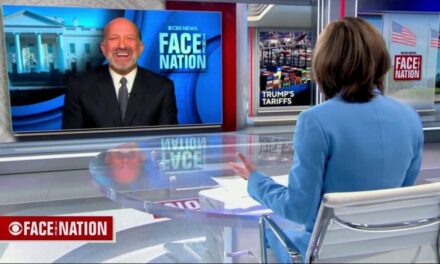In the ever-evolving landscape of American politics, the Democratic Party finds itself grappling with a pressing challenge: appealing to male voters. NBC News’ Chuck Todd has recently voiced his concerns regarding the party’s struggles to connect with men, arguing that this disconnect may have deeper implications as the 2024 elections approach.
During a recent broadcast, Todd elaborated on his thoughts, highlighting the perception that male success is often labeled as a “gender advantage.” This assertion is particularly poignant within the context of the Democratic Party’s historical strengths and weaknesses regarding various demographic groups. Todd’s critique opens a broader discussion about how political parties engage with different segments of the electorate.
The Democratic Party has predominantly been viewed as the party that champions equality and inclusion, seeking to protect and advocate for marginalized groups. However, Todd’s comments suggest that this focus may have inadvertently alienated a significant portion of the voting demographic: men, particularly those who identify as working class or middle class.
As the political arena prepares for what many analysts predict to be an intense election cycle in 2024, Todd’s perspective highlights an emerging dilemma within the Democratic ranks. With traditional voter bases shifting and evolving, understanding the concerns and priorities of male voters may become increasingly critical for Democratic candidates seeking success at the polls.
This discussion is further complicated by the changing dynamics around gender roles and expectations within society. Historically, certain advantages have been attributed to men in various capacities, such as professional settings and political representation, which Todd references in his statements. As the cultural narrative continues to evolve, the association of male achievement with inherent privilege complicates discussions around gender and politics.
Todd’s focus on this issue is not merely an observation but a call to action for the Democratic Party. If the party wishes to reclaim support among male voters, it may need to reassess its approach and messaging. This might involve a deeper examination of the narratives surrounding masculinity and success, particularly in an age where many men feel disenfranchised or overlooked in political discourse.
The media landscape is instrumental in shaping public perception, and figures like Todd wield significant influence. By raising concerns about how male voters view Democratic candidates and their platforms, Todd encourages a re-evaluation of strategies that have, in recent years, failed to secure the loyalty of this crucial demographic.
Moreover, Todd’s remarks draw attention to the potential pitfalls of labeling male success strictly within the framework of privilege. Acknowledging the unique challenges men face, particularly in contemporary society, could pave the way for more nuanced discussions and policies from the Democratic Party that resonate with this group.
As the political race heats up, candidates may need to consider how to frame their messages to appeal not only to women and minority groups but also to men who may feel that their narratives are now marginalized or misunderstood. Addressing concerns related to job security, economic mobility, and social status could create a pathway for bolstering support among male constituents.
Furthermore, Todd’s critique does not exist in isolation; it reflects broader trends observed in polling data and voter sentiment. Many surveys indicate that men, especially those without a college education, have increasingly leaned toward Republican candidates in recent elections. This shift raises an alarm bell for Democrats, who must decipher the underlying reasons for this migration away from traditional support.
As political strategists and party leaders engage in post-mortem analyses of previous election cycles, understanding the evolution of male voters’ attitudes is paramount. Whether through campaign messaging, outreach programs, or policy initiatives, reconnecting with this demographic is essential if Democrats hope to compete effectively in the upcoming elections.
Additionally, it is vital for the party to ensure that it does not merely seek to capitalize on historical trends but instead fosters genuine engagement with male voters’ concerns. Such an approach implies a commitment to thoughtful dialogue and sustained outreach that respects the complexities of gender dynamics rather than oversimplifying them.
Moreover, the notion of a “gender advantage” must be unpacked to avoid stigmatizing male voters or oversimplifying their experiences. Recognizing the diversity within the male demographic—acknowledging the struggles faced by working-class men, while also appreciating the achievements of those in privileged positions—can help establish a more inclusive narrative.
As the Democratic Party navigates these turbulent waters, leaders must prioritize building coalitions that include male voices in conversations about the future. Engaging men on issues such as healthcare, economic opportunity, and social justice will be pivotal in creating a comprehensive platform that resonates across demographic divides.
In conclusion, Chuck Todd’s observations regarding the Democratic Party’s struggles with male voters serve as a clarion call for reflection and action. The term “gender advantage,” as discussed in his commentary, encapsulates the multiple layers of gender dynamics in politics, calling for a more nuanced understanding. As the 2024 elections approach, it will be crucial for Democrats to extend their outreach to male voters, fostering dialogue and priorities that align with their needs and aspirations, with an eye toward creating a more inclusive political environment for all. The path to reclaiming support from male voters is fraught with challenges, but it also presents an opportunity for growth, learning, and ultimately, unity within the Democratic Party’s mission to advocate for equality and representation for every citizen. It remains to be seen how the party will respond to these challenges, but the stakes are undeniably high.
































